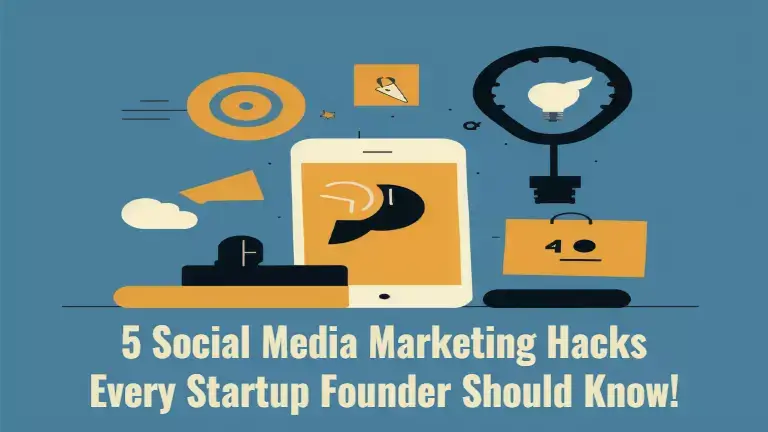Finding Your First Die-hard Fans.
It should be the number #1 goal of any brand to create die-hard fans. These are people who so strongly identify with your business and its mission that they feel personally invested in how well it succeeds. They talk about you with other people, share your content on social media, and even evangelize for you as if it were their own product or service.
Creating die-hard fans is different than simply having a large number of followers though. You can have thousands or even millions of followers but still not have any real die-hard fans who are truly invested in your brand. And if that’s the case then what’s the point? You might as well just have bought some bots or fake accounts from overseas spammers because at least then those accounts would be generating revenue for them instead of costing you time, money and resources trying to cultivate them into something meaningful for your business!
Create a Welcoming Environment.
The first thing you need to do is create a welcoming environment. This means making sure your fans feel safe when they visit your page or site. You don’t want them to think that you are out to get them or take advantage of their gullibility and naivety, so be sure not to come across as too formal or aggressive in tone. At the same time, it’s important not to become too casual and throw out insults here and there just for laughs because this can make people feel uncomfortable about visiting your profile again later on.
The best way I’ve found so far is by writing blog posts that seem genuine while still maintaining some level of professionalism—in other words: Don’t overdo it either way!
Provide Consistent Information.
You want to provide consistent information. You don’t want to change the rules, or use too many different ways of communicating with your audience. Keeping your overall message consistent is important because it helps create a blueprint for people who are new to your work, and it also makes it easier for fans who’ve been following you from day one.
Never Ignore Your Followers.
Never ignore your followers.
There are no real excuses for not responding to comments and questions on social media, but there are plenty of excuses for why you should. Your fans want to connect with you, so help them by making it easy for them! Responding will show that you care about the relationship between yourself and your fans, and give them a chance to feel valued enough for their opinions that they’ll take time out of their day to interact with your brand again.
Be responsive in other ways too: make sure all messages are answered promptly (within 24 hours if possible), be respectful in your interactions with people who may not be familiar with common business practices/etiquette online, respond consistently across channels—the more consistent the better! And above all else: don’t take forever just because something came up or because someone else needed attention first. If something comes up later down the line then go ahead and address those concerns, but if someone asks a question or makes a comment now then see how quickly they can get an answer from you instead!
Why are Die-hard Fans Important?
You may be thinking, “What’s the big deal? I’m not a rock star.” And while I can’t speak to your particular situation, what I can say is that there are a lot of benefits to having die-hard fans.
- They’ll share your content. When you have fans who really love what you do, they’re more likely to share it with others. They’re also more likely to buy from you or recommend your products or services to people in their network (which is called word of mouth marketing). If someone has been following an artist for years and then buys tickets for a concert, he or she will probably tell several friends about the experience. Word spreads through social media quickly these days—and if other people see how happy this person has been all along with what he bought from said artist/author/blogger/etc., chances are good that they’ll want some as well!
- You’re less likely to get attacked online by haters because…you guessed it…your fans will defend you! It’s pretty easy for one nasty comment on Twitter or elsewhere online about something someone else wrote/said/did–whether it’s true or not–to snowball into hundreds more negative comments if enough observers join in on the bashing party without stopping long enough before typing something mean-spirited themselves (especially if no one else defends this person). That’s why having real die-hard fans who genuinely like everything about you and truly support you is a good thing to strive for.
Create a Community Around Your Brand!
The first thing you need to do is create a community around your brand.
You’ve probably heard the term “die-hard fan” thrown around before, but what does that mean? It’s someone who is so loyal to the brand he or she loves that they’d rather die than stop using its products. Sometimes, these people will call themselves fans for life (or F4Ls), and they’re not just regular customers—they’re also advocates for your company.
They are also more likely to recommend your product or service to others, which means that word of mouth can be even more powerful than it was in the pre-digital age. As a result, companies have spent billions of dollars on advertising over the last few decades in order to reach their target audience through traditional channels such as print ads and television commercials.
But today’s consumers are different from those who came before them: they don’t want advertisements shoved down their throats while they’re trying to get work done; they want meaningful interactions instead! Enter social media marketing: now companies can connect directly with their customers through Facebook posts and Twitter hashtags instead of relying solely on billboards or magazine ads (which usually end up getting ignored or tossed into recycling bins).
Get Your Die-hard Fans Involved in the Process.
- Give your fans a role in the process. Make them feel like they have skin in the game and that their voice matters. If you’re on social media, this can be as simple as giving them an opportunity to ask questions or give feedback on what it is you’re doing. It might even be worth taking time out of your busy schedule to respond personally!
- Let them know that you care about what they have to say, and don’t just do so for strategic purposes. If a fan says something particularly insightful or funny, share it with others—even if it isn’t directly related to your brand or product! And if someone has a problem with something related to your business address it openly and transparently rather than ignoring them like so many companies do today. You’ll build trust over time by showing people that you aren’t afraid of confronting challenges head-on instead of sweeping them under the rug indefinitely until they go away on their own accord–and of course: trust is everything when building lasting relationships with customers.”
The First Steps Are Always the Hardest.
If you’re just starting out, it can feel like there are too many options to keep track of! We want to help you identify the right social media platform for your business and create an authentic brand identity that aligns with your company values. Don’t forget: following trends is great, but keeping it personal is what will keep people engaged and coming back again and again. If you find yourself struggling to create content that forges an intimate bond between you & your community, take a look at this article and read about how to “Personalize Your Outward Messaging”.



